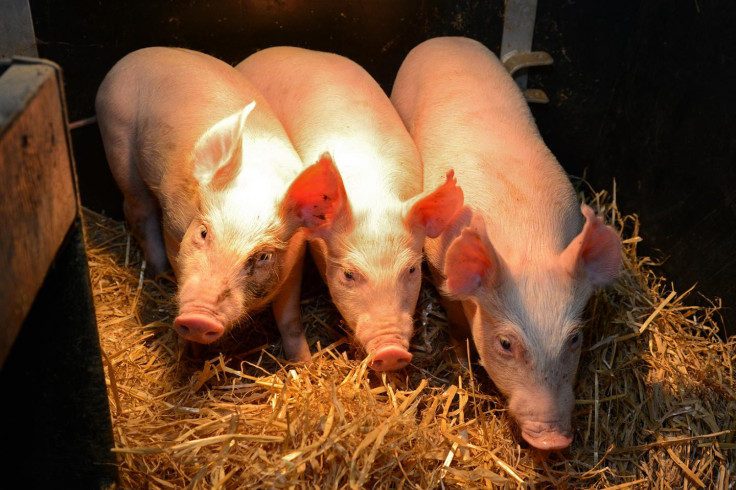Gene-edited pigs created in attempt to defeat swine virus
Four first-generation edited pigs have been created and they now have 30 offspring to test for resistance to the PRRS virus.
Four pigs with genomes edited to try to make them resistant to Porcine Reproductive and Respiratory Syndrome (PRRS), which can result in lung problems and abortions, have been created. So far, there is no cure for the disease, but there are vaccines that provide partial protection.
Initial tests in the laboratory have shown that the pigs' immune cells that are the target of the PRRS virus are resistant to it. However, the edited pigs themselves have not yet been exposed to the virus, which will be the true test of whether or not they have acquired resistance.
Scientists at the University of Edinburgh's Roslin Institute used the CRIPSR/Cas9 gene editing technique to alter the pigs' genomes to make a change in a protein called CD163, which is present on a type of immune cell called a macrophage. The PRRS virus attaches to this protein before invading the immune cells to cause disease in pigs.
The researchers tweaked a gene encoding CD163 so that it was just different enough that the virus couldn't take hold of it. In a dish, it seemed to work, and PRRS was not able to bind to or infect the immune cells.
A protein with many functions
A group in the US have previously made gene-edited pigs resistant to PRRS, but only by wiping out the gene for CD163 entirely.
This more radical approach comes with greater risks, as the protein is known to have several roles, including mopping up oxygen radicals in the blood, which are very reactive and can cause harm to tissues if allowed to build up. CD163 is also involved in immunity to bacterial infections, so removing the protein entirely could come with significant health risks for the pigs.
The aim of tweaking the protein rather than removing it is to minimise the impact of changing CD163's structure. So far, the pigs with the altered CD163 appear to be normal and without any negative effects, study author Alan Archibald told IBTimes UK.

Whole-animal tests
The next step is to move from experiments in a dish to experiments in a whole pig. The researchers will be exposing the four pigs and their offspring to the virus in the next couple of weeks, Archibald said. There are now about 30 offspring from the original four edited pigs, including some with two edited parents and some with one edited and one unedited parent.
The ultimate goal of the researchers at Edinburgh and their commercial partners, Genus Plc, is to create gene-edited PRRS-resistant pigs that can be sold to farmers. Genus Plc has been in conversation with the US's Food and Drug Administration about bringing PRRS-resistant gene-edited pigs to market, said Jonathan Lightner, chief R&D and scientific officer of Genus Plc.
These standards, unlike for other types of genetic modification of organisms, are not yet well established for gene-edited animals. In some countries, such as China, gene-edited micropigs have already been sold commercially as pets.
The research is published in a paper in the journal PLOS Pathogens.

© Copyright IBTimes 2024. All rights reserved.






